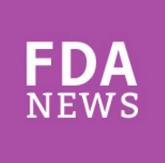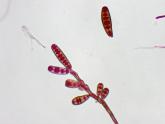News

Oncology drug shortages cut wide path of harm
Major finding: Overall, 16% of respondents reported near-miss medication errors because of an oncology drug shortage; 6% said the error reached...
NEWS ANALYSIS
Dr. Markman described the increasing reliance on compounding pharmacies as the flip side of the coin to drug shortages that have hit oncology patients hard, particularly shortages of generic, sterile injectable drugs. Compounding pharmacies have traditionally created custom-made products for individual patients, but they also fill gaps in the supply chain when drugs aren’t available from mainstream drug companies.
Some compounders are producing medications in advance of or without a prescription and distributing them across state lines, creating a "new breed" of specialty pharmacy compounding that "has outgrown the law, and can pose a threat to the health of the public," Food and Drug Administration Commissioner Margaret Hamburg wrote in a blog.
She argued for greater federal oversight including such "basic protections" as clear authority to examine compounding pharmacy records and prohibit compounding of "the most complex and highest risk products," including biologics.
The FDA has no data on how many compounded drugs and infusion products are earmarked for cancer patients because, under current law, compounding pharmacies that meet certain conditions are generally not required to register with the FDA or to list the drugs they compound, FDA spokesperson Christopher Kelly said.
The agency came under sharp criticism last fall for failing to take action during the meningitis outbreak, which killed 53 people in 20 states.
The FDA is targeting "higher-risk" compounding pharmacies and has issued multiple warning letters detailing violations found during 30 inspections over the last 2 months.
The FDA issued warning letters to Med Prep Consulting in 2001 and again in July 2010 after an inspection revealed the firm was repackaging sterile drugs without a patient-specific prescription, eliciting concerns about potential microbial contamination. Further details are not being released at this time because of the ongoing investigation, Mr. Kelly said.
Several regulatory proposals were recently floated in Massachusetts, including a bill by Gov. Deval Patrick that requires compounding pharmacies to obtain a special state license and creates whistleblower protections for pharmacy workers.
Last November, Rep. Edward Markey (D-Mass.) introduced the VALID ACT in an effort to strengthen federal regulations for compounding pharmacies. "It was a casualty of a completely inept session of Congress" but will be introduced again in the next 6-12 weeks, Mr. Markey’s communications director Eben Burnham-Snyder said.
The accreditation option
The American Society of Health System Pharmacists is also calling for unaccredited compounding facilities to seek accreditation by a "nationally credible accreditation body." The Pharmacy Compounding Accreditation Board (PCAB) is one possibility, but it’s up to the FDA and Congress to make an endorsement, Mr. Topoleski said.
Of the roughly 3,000 compounding pharmacies in the United States, 171 were accredited by the PCAB at the end of March. Accreditation applications during the first 2.5 months of 2013 outpaced applications for the first half of 2012, said Cindy Freberg, PCAB director of operations. Still, that is only nine more than during the height of the meningitis outbreak. Ms. Freberg said that the voluntary process takes time and involves U.S. Pharmacopeia Chapter 797 compliance for most of the PCAB standards.
"They’re looking for compliance in all of our standards," she said. "It’s not just a matter of picking one or two things."
PCAB accreditation is not recognized in the federal Food, Drug, and Cosmetic Act and "is of no regulatory significance to the FDA," noted Mr. Kelly.
Latest recall update
To date, there have been no injuries or illnesses reported to the FDA related to the Med Prep recall or to the March 25 recall of 16 sterile compounded products by Boston-based Pallimed Solutions just 5 days after Med Prep. The repackaging of bevacizumab (Avastin) into individual doses for off-label ophthalmic use, which has been a long-standing problem for the compounding industry, was tied to five serious eye infections and sparked a recall March 20 by Clinical Specialties Compounding Pharmacy. None of the three compounding pharmacies was accredited by PCAB, according to a search on its website.
*Correction, 4/11/2013: An earlier version of this story misattributed the source of this information.

Major finding: Overall, 16% of respondents reported near-miss medication errors because of an oncology drug shortage; 6% said the error reached...


